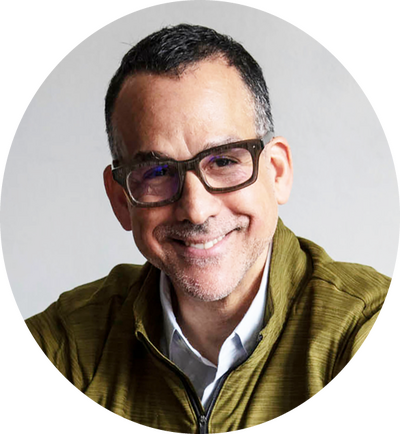
In this Q&A, Boyden’s Alain Pescador sits down with Jack Mardack, Co-Founder and Chief Impact Officer at Oyster, a global employment platform that simplifies hiring, managing, and paying employees worldwide while ensuring compliance with local laws. They delve into the pioneering work of Oyster and discuss the transformative impact of remote work both before and after the pandemic.
Jack shares insights on how Oyster is democratizing the labor market by providing access to meaningful employment opportunities worldwide, regardless of geographical barriers. The conversation also highlights the immense value of tapping into global talent, showcasing how diverse perspectives can drive innovation and foster economic growth in emerging economies. Jack emphasizes that people are an organization's greatest assets, and opening doors to global talent can lead to enhanced productivity, groundbreaking innovation, and high-quality collaboration. He encourages organizations to broaden their perspectives on workforce diversity and experience the profound benefits of radical global diversity firsthand.
Alain: How has your personal life and upbringing influenced your professional journey?
Jack: Growing up as the son of Latin American immigrants (Dominican mother and Colombian father) in Queens, New York, I quickly learned to appreciate the privilege of my circumstances. Initially on a path to become a doctor, I shifted to finance to support my sick mother. However, I soon realized my passion lay in creating and innovating, leading me to Silicon Valley.
My diverse background and professional journey inspired the creation of Oyster, a company designed to produce significant positive impact while addressing global challenges. We built Oyster with the belief that a for-profit organization can drive meaningful change, especially in areas like economic inequality and racial injustice. The pandemic further highlighted the need for such innovative solutions, and at Oyster, we’re leveraging the global labor market to tap into exceptional talent and make a difference.
Alain: Can you explain what Oyster is and the journey that led to its creation?
Jack: Absolutely! Oyster is a global employment platform that makes it simple for companies to hire, manage, and pay employees anywhere in the world, all while staying compliant with local laws. But we do more than just handle the logistics; we aim to create positive change by opening up remote job opportunities and helping economies grow in developing countries. Our platform helps companies tackle the complexities of global employment, changing how they see and use global talent. With nearly 600 employees across 70+ countries, Oyster demonstrates the incredible value of having a diverse, worldwide team, which drives innovation and brings fresh perspectives to the workplace.
Alain: Oyster officially launched in January 2020, right before the pandemic. How did the pandemic impact Oyster, and how did you navigate those early days?
Jack: The pandemic had a massive impact on Oyster and the world of work. At the end of 2019 and early 2020, we were raising a modest seed round, trying to get our little sailboat off the sand, hoping for some wind. The rapid changes in how people worked due to the pandemic were both a challenge and an opportunity for us.
Before the pandemic, we were already committed to being a fully distributed company with no offices. I remember thinking in late 2019 how strange it might be to explain this concept to people. We had many questions about how we would onboard new team members and operate without a physical office.
Then, the pandemic hit, and suddenly, the whole world had to embrace remote work. This accelerated the acceptance and necessity of our model. What seemed like a radical idea became the new norm almost overnight, giving Oyster a significant push forward in our mission and growth.
Alain: How has a shock like the pandemic influenced the evolution of remote work?
Jack: The pandemic significantly accelerated the shift towards remote work, a change that was already underway due to advancements in software and internet tools. Over the last 40 years, productivity tools like SaaS platforms, Slack, and email have revolutionized how we work, challenging the limitations of traditional office setups.
Even prior to the pandemic, remote work was gaining traction, especially among elite knowledge workers like software developers. These professionals not only embraced remote work but also utilized advanced tools and commanded higher salaries, serving as pioneers in this evolution.
The pandemic served as a catalyst, propelling other knowledge workers—such as designers, lawyers, and business developers—towards remote work. This democratization of remote work highlighted the viability of various professions operating successfully without a physical office.
Now, as we adapt to this new reality, ongoing debates about the necessity of physical offices persist. However, the key takeaway for leaders is the imperative of a deliberate, conscious approach to remote work. It's not merely about implementing a remote work policy; it's about HR and the people function taking a central role in crafting the work experience.
This paradigm shift puts HR in a central role, moving beyond IT concerns like security and cost to focus on creating tools and workflows that suit a specific work environment. It's a crucial moment for HR leaders to shape the future of work.
Alain: Why do you think there’s an increasing number of CEOs and CHROs showing reluctance to fully embrace remote work, with some leaders leaning towards reverting to pre-pandemic office norms?
Jack: It's fundamentally about control. Leaders often feel uneasy when they can't physically see their employees working. This emotional inertia stems from a long history where the employer's concern was primarily about the time employees spent working. The pandemic disrupted this paradigm, offering an opportunity for a shift. However, retooling this mindset is challenging for many organizations.
While some companies struggle to trust their employees with remote work, others, like Oyster, have embraced it successfully. We focus less on monitoring time spent working and more on empowering our team members to excel in their roles. Remote work necessitates a shift in focus towards other aspects of productivity and engagement.
Alain: Beyond physical location, what other impact measurements are essential for organizations to assess when considering remote or distributed work?
Jack: It's crucial to look at the bigger picture of global systems. Our planet's finite resources are strained by our relentless pursuit of economic growth. However, knowledge work offers a solution. By leveraging skilled individuals from around the world, we can create economic growth without further taxing the Earth. This approach not only boosts economic output but also fosters better economic distribution, particularly in emerging economies. Remote work not only provides job opportunities but also democratizes entrepreneurship, empowering individuals to become founders and make a positive impact in their communities. So, as leaders, it's vital to recognize the broader implications of remote work beyond just the physical location of employees.
Alain: What are organizations missing out on by not tapping into the global talent pool and embracing diverse perspectives from around the world?
Jack: Simply put, people are an organization's greatest assets. Opening your doors globally to talented individuals can be transformative in ways that defy quantification. While there's often discussion around the ROI of diversity in terms of productivity, the real magic happens when you experience radical global diversity firsthand. At Oyster, we've seen that diversity leads to enhanced productivity, astonishing rates of innovation, and higher quality collaboration. These effects are profound and must be experienced to be truly understood. So, I encourage organizations to broaden their perspectives on workforce diversity and embrace the wealth of talent available worldwide.





